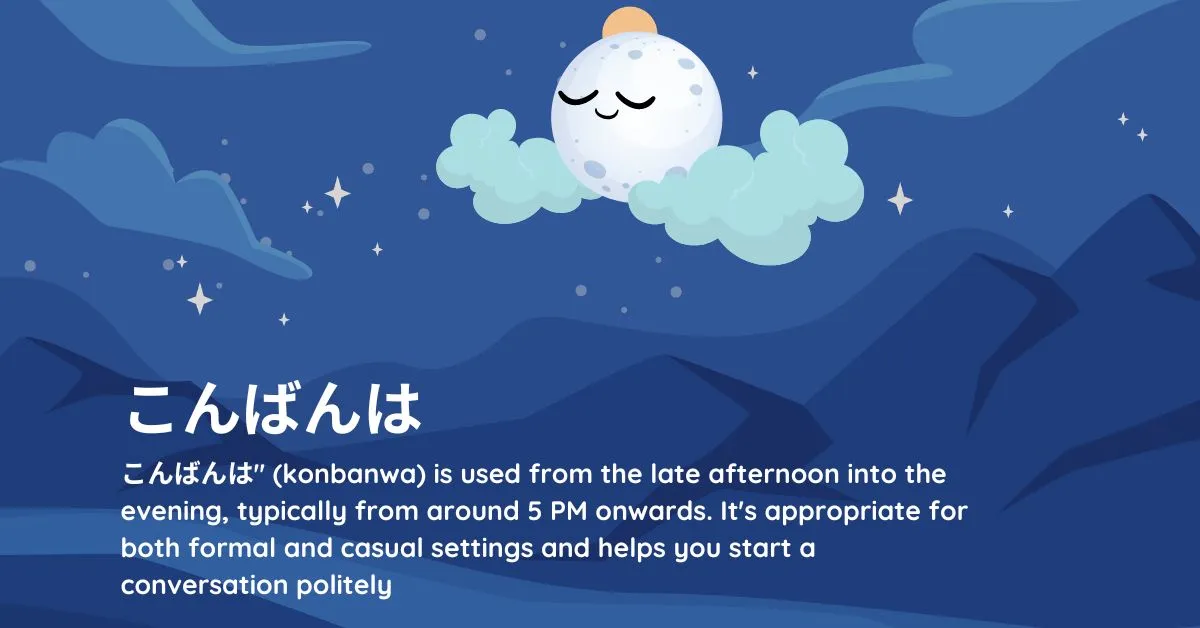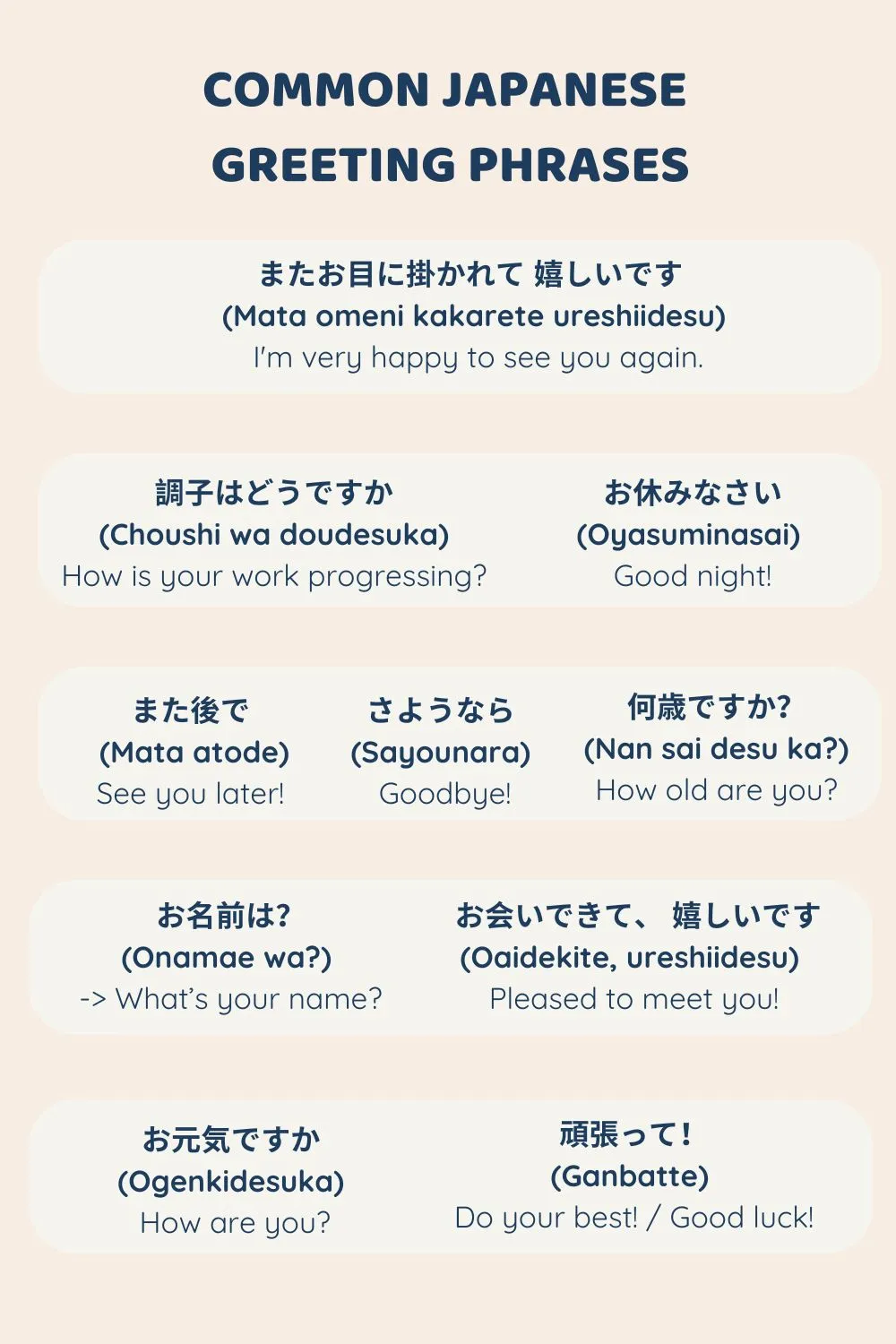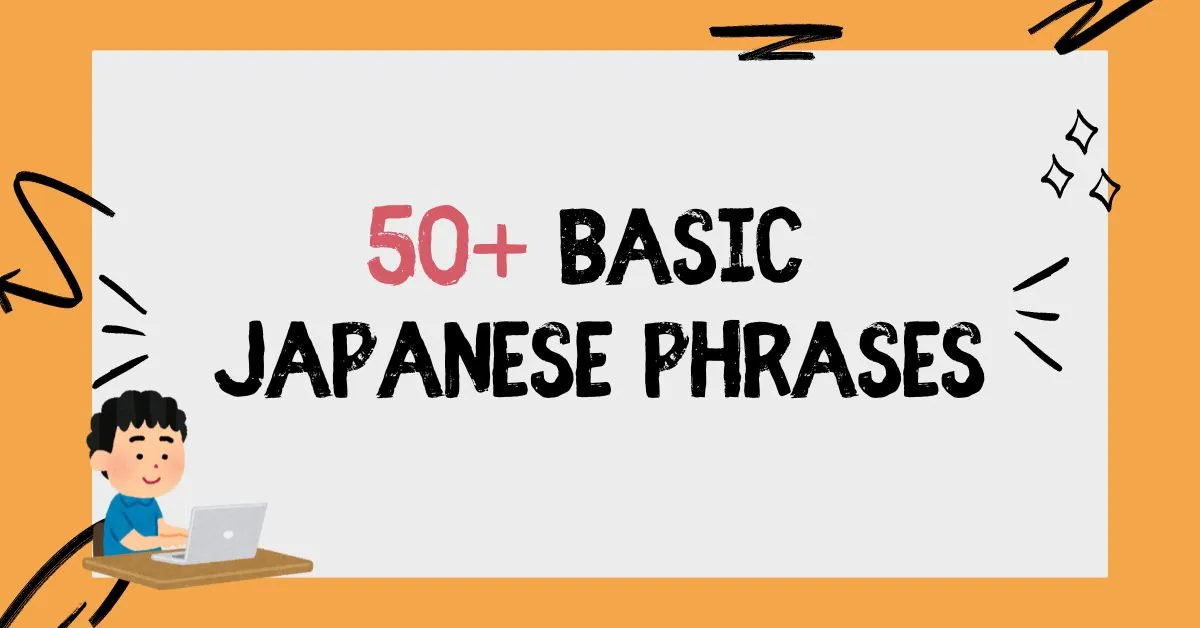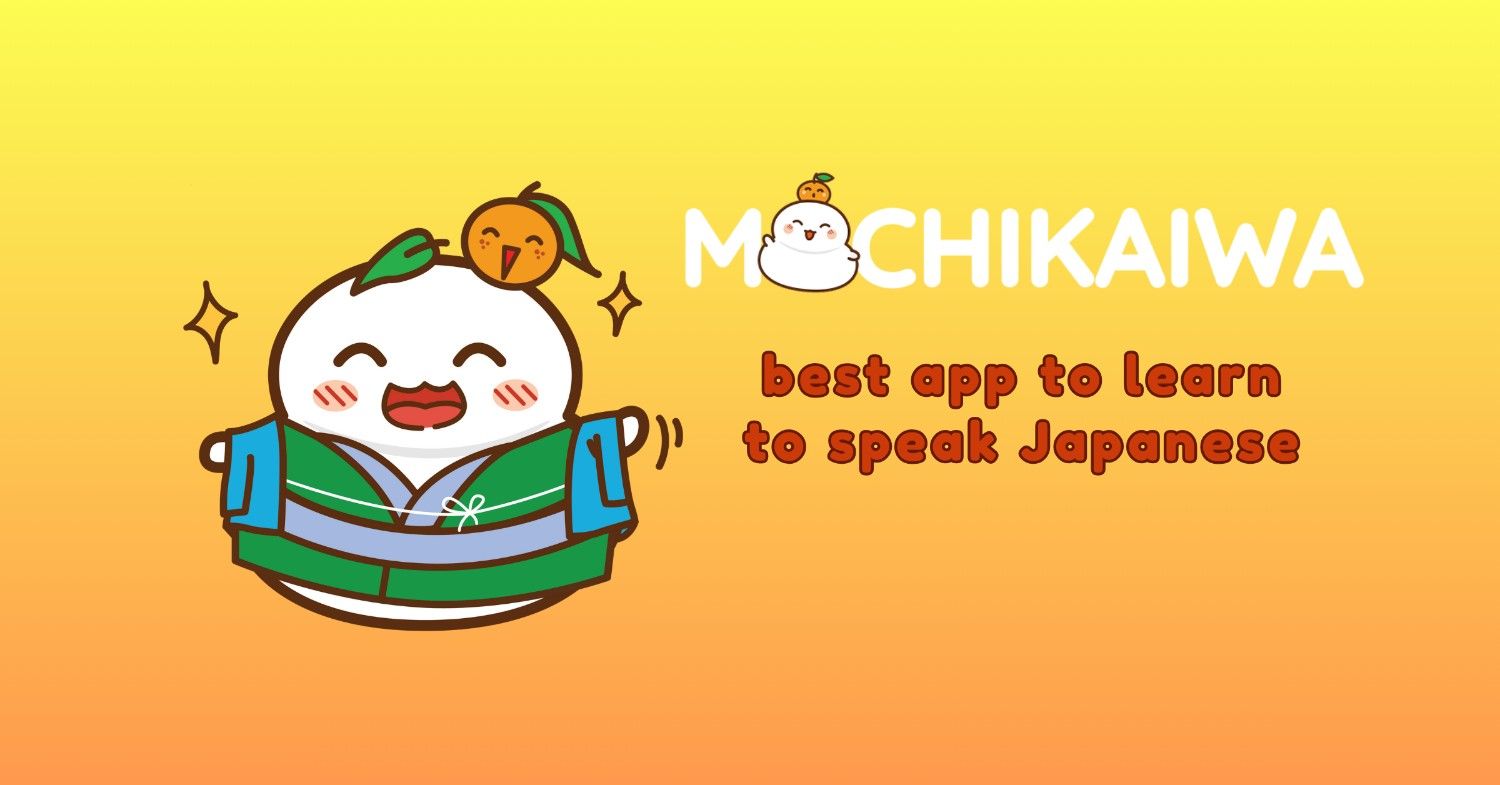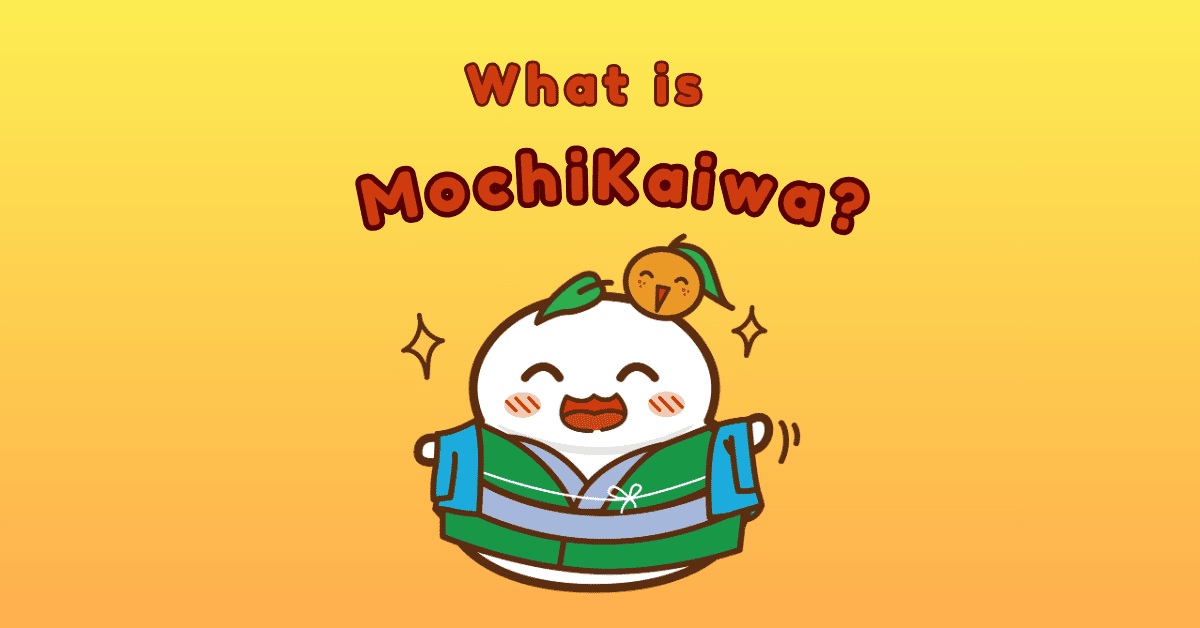Greeting someone properly is key to making a good impression, especially in Japanese culture. If you’re wondering how to say ‘Good evening’ in Japanese or want to expand your knowledge of common Japanese greetings, you’ve come to the right place. This guide will cover how to greet someone in the evening and introduce you to other useful Japanese greetings.
- How to say ‘good evening’ in Japanese
- Other common Japanese greetings
- 20 Common Japanese greeting phrases
- Enhancing your Japanese learning with MochiKanji

1. How to say ‘good evening’ in Japanese
The standard way to say ‘good evening’ in Japanese is “こんばんは” (konbanwa). This greeting is used from the late afternoon into the evening, typically from around 5 PM onwards. It’s appropriate for both formal and casual settings and helps you start a conversation politely.
Example:
こんばんは、今日はどうでしたか? (Konbanwa, kyou wa dou deshita ka?)
-> Good evening, how was your day?
2. Other Japanese greetings
a. Japanese morning greetings
– おはよう (ohayou) – Good morning (Casual)
The informal “おはよう” (ohayou) is used among friends, family, and people of the same social level. It’s a casual way to say “good morning” and is typically used until around 10 AM.
Example:
おはよう、今日は何をする予定ですか?(Ohayou, kyou wa nani o suru yotei desu ka?)
-> Good morning, what are your plans for today?
– おはようございます (ohayou gozaimasu) – Good morning (Formal)
“おはようございます” is the formal version of “おはよう.” It is used in professional settings, with elders, or in situations requiring politeness. This greeting is crucial in creating a positive first impression, particularly in a working environment.
Example:
会議室で: おはようございます。皆さん、会議を始めましょう。(Kaigishitsu de: Ohayou gozaimasu. Minasan, kaigi o hajimemashou.)
-> Good morning. Everyone, let’s start the meeting.
b. Japanese afternoon greetings
– こんにちは (Konnichiwa) – Hello or Good Afternoon
The phrase “こんにちは” can be translated as either “Good afternoon” or “Hello.” It’s used to greet people from late morning, starting around 11 AM, until the early evening, around 6 PM. This versatile greeting can be used at any time of day when you want to say hello or inquire about someone’s well-being.
Example sentence:
こんにちは、今日はどうでしたか? (Konnichiwa, kyou wa dou deshita ka?)
-> Hello, how was your day today?
c. Evening greetings
– こんばんは (Konbanwa) – Good evening
“こんばんは” is a common greeting used in the evening, generally from around 5 PM until late at night. It’s appropriate in both formal and informal settings, making it a versatile choice for evening conversations.
Example:
友達: こんばんは、今日の仕事はどうだった?(Tomodachi: Konbanwa, kyou no shigoto wa dou datta?)
-> Good evening, how was work today?
d. Night and goodbye greetings
– おやすみ (Oyasumi) – Good night (Casual)
“おやすみ” is a casual way to say “Good night” and is typically used among friends and family. Use “おやすみ” when saying good night to someone you’re close to, usually before going to bed.
Example:
おやすみ、いい夢見てね。
(Oyasumi, ii yume mite ne.)
-> Good night, sweet dreams.
– おやすみなさい (Oyasuminasai) – Good night (Formal)
“おやすみなさい” is the formal version of “おやすみ” and is used in more polite or respectful contexts. It is preferred when addressing someone of higher status or in formal situations.
Example:
おやすみなさい。また明日会いましょう。
(Oyasuminasai. Mata ashita aimashou.)
-> Good night, let’s meet again tomorrow.
– Using “Oyasumi” when leaving late
When leaving late at night, such as after work or a social event, you can use “おやすみなさい” if you’re not very close to the person.
Example:
部長: 今日はお疲れ様でした。おやすみなさい。
(Kyou wa otsukaresama deshita. Oyasuminasai.)
-> Thank you for your hard work today, good night.
MochiKanji’s conversation course helps you effectively improve your Japanese speaking skills. The program offers interactive lessons and real-life scenarios, enabling you to confidently communicate in everyday situations.
Try it now and start mastering Japanese conversations!
3. 20 Common Japanese greeting phrases
1. またお目に掛かれて 嬉しいです (Mata omeni kakarete ureshiidesu)
-> I’m very happy to see you again.
2. お会いできて、 嬉しいです (Oaidekite, ureshiidesu)
-> Pleased to meet you!
3. 調子はどうですか (Choushi wa doudesuka)
-> How is your work progressing?
4. またよろしくお願いします (Mata yoroshiku onegaishimasu)
-> I hope for your continued support next time as well.
5. お元気ですか (Ogenkidesuka)
-> How are you?
6. 最近どうですか (Saikin doudesuka)
-> How have you been lately?
7. また後で (Mata atode)
-> See you later!
8. さようなら (Sayounara)
-> Goodbye!
9. お休みなさい (Oyasuminasai)
-> Good night!
10. 久しぶり (Hisashiburi)
-> Long time no see ( is a friendly greeting when meeting someone you haven’t seen in a long time)
11. 貴方のお父様によろしくお伝え下さい (Anata no otousama ni yoroshiku otsutae kudasai)
-> Please send my regards to your father!
12. 気をつけて (Ki wo tsukete)
-> Take care!
13. ただいま (Tadaima)
-> I’m back (used when returning home)
14. では、また (Dewa mata)
-> See you again soon!
15. 頑張って! (Ganbatte)
-> Do your best! / Good luck!
16. お名前は?(Onamae wa?)
-> What’s your name?
17. 何歳ですか?(Nan sai desu ka?)
-> How old are you?
18. はい (hai)
-> Yes
19. いいえ(iie)
-> No
20. 宜しくお願いします。(Yoroshiku onegaishimasu.)
-> Please treat me well.
4. Enhancing your Japanese learning with MochiKanji
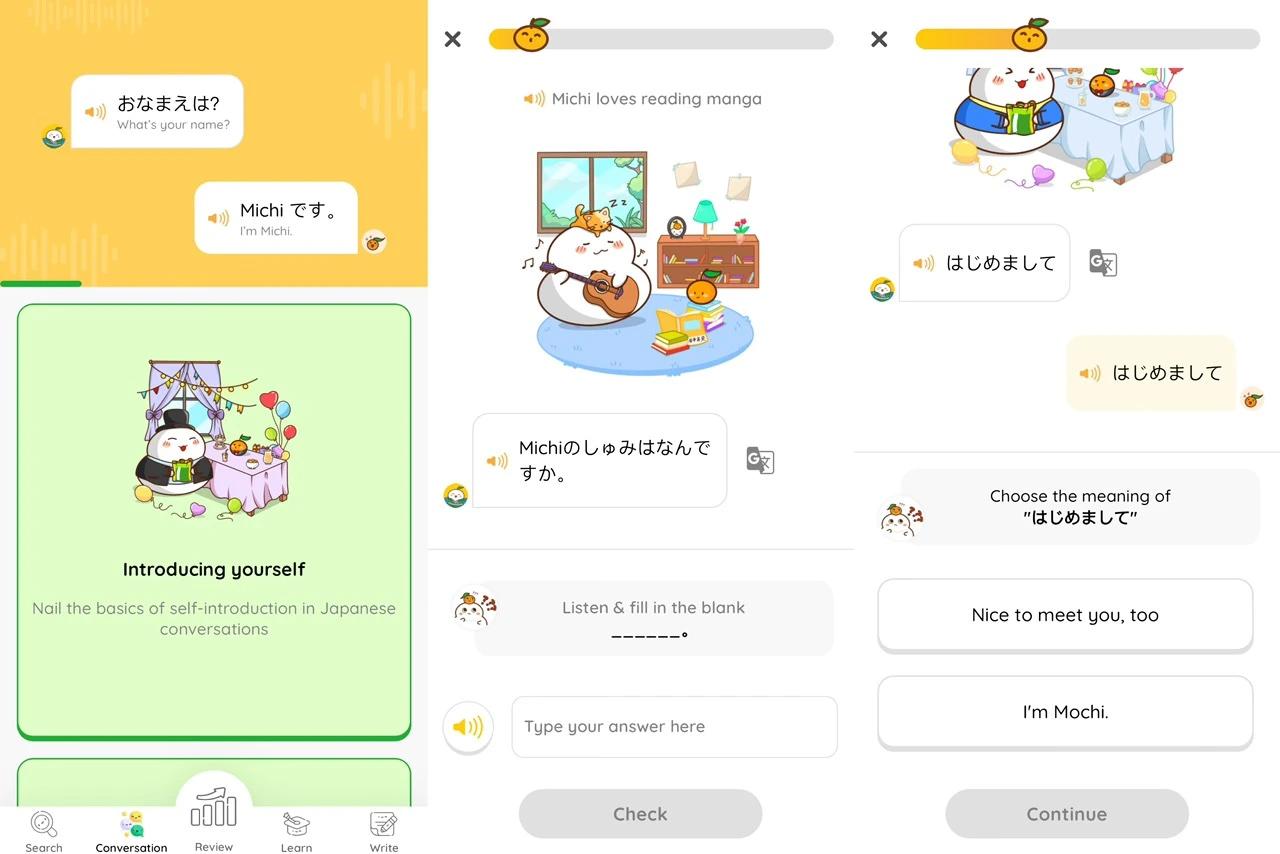
MochiKanji offers an effective way to master Japanese greetings through its comprehensive communication courses. These courses focus on real-life conversational skills, helping you practice common greetings and everyday phrases used in various contexts. With interactive dialogues and practical exercises, you’ll learn how to greet people naturally and appropriately in Japanese.
Additionally, MochiKanji’s Golden Time feature optimizes your learning by using spaced repetition, while its extensive vocabulary courses cover over 8,000 words, ensuring you build a strong foundation in Japanese.
Mastering Japanese greetings is essential for effective communication and cultural integration. By learning how to say ‘Good evening’ in Japanese and familiarizing yourself with other common greetings, you’ll be able to engage more naturally and respectfully in conversations. Practice these phrases regularly to build confidence and enhance your Japanese language skills.

